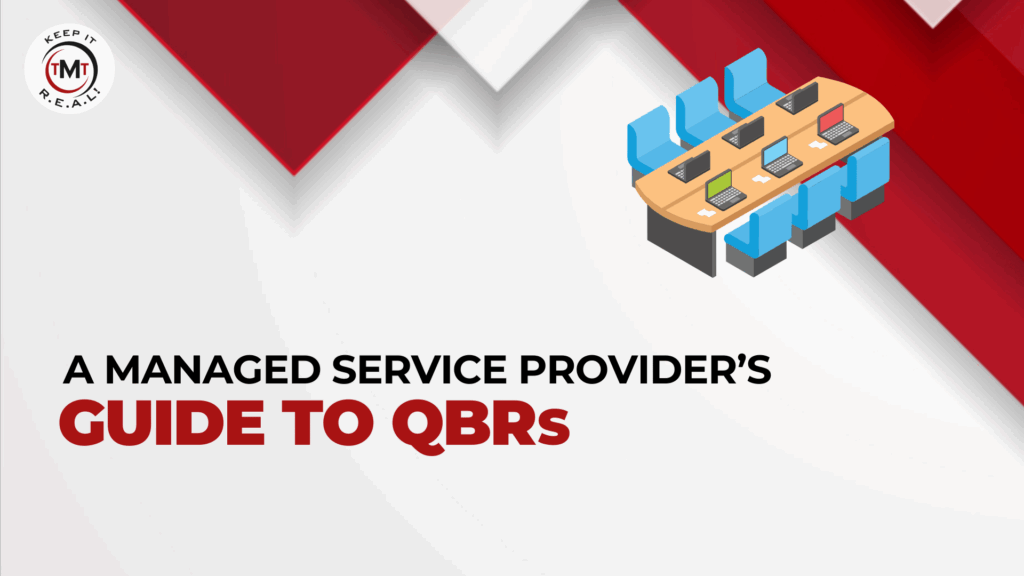In today’s technology-driven world, businesses rely heavily on their IT infrastructure to stay competitive and efficient. One of the key decisions that companies face is whether to outsource their IT support to a Managed Service Provider (MSP) or to maintain an internal IT department. Both options have their advantages and considerations, and choosing the right one for your company can have a significant impact on your operations and bottom line.
Understanding MSPs
Before we delve into the comparison between MSPs and internal IT departments, it’s important to understand what an MSP is and the role it plays in supporting businesses. Simply put, an MSP is an external company that provides a wide range of IT services to organizations on a proactive and ongoing basis. These services can include monitoring and maintaining computer systems, managing network security, resolving technical issues, and providing strategic IT consulting.
Defining MSP And Its Role
An MSP acts as an extension of your company’s IT department, taking care of all your technology needs so that you can focus on your core business activities. They typically have a team of skilled IT professionals with extensive knowledge and expertise in various areas of IT.
Key Services Offered By MSPs
MSPs offer a comprehensive range of services to meet the IT needs of businesses of all sizes. Some of the key services provided by MSPs include:
- 24/7 system monitoring and support
- Network administration and security
- Data backup and disaster recovery
- Software updates and patches
- Helpdesk support
- Strategic IT planning and consulting
When it comes to system monitoring and support, MSPs utilize advanced monitoring tools and technologies to proactively identify and address potential issues before they become major problems. This proactive approach helps to minimize downtime and ensure that your systems are running smoothly at all times.
Network administration and security are also crucial aspects of MSP services. MSPs employ a range of security measures, such as firewalls, intrusion detection systems, and encryption, to protect your network from unauthorized access and potential cyber threats. They also regularly update and patch software to ensure that your systems are equipped with the latest security features.
Benefits Of Using An MSP
There are several benefits to outsourcing your IT support to an MSP.
- Cost Savings – MSPs offer scalable solutions, allowing you to pay only for the services you need. This can help reduce IT costs compared to maintaining an internal IT department.
- Access To Expertise – MSPs have a team of IT professionals with specialized knowledge and experience in different areas of technology. This expertise can be invaluable in keeping your systems running smoothly and securely.
- Improved Efficiency – With an MSP taking care of your IT needs, your internal staff can focus on core business activities, improving overall productivity and efficiency.
- 24/7 Support – MSPs provide round-the-clock support, ensuring that any IT issues are addressed promptly, minimizing downtime and disruption to your business.
- Scalability And Flexibility – MSPs can easily scale their services to accommodate your evolving business needs. Whether you’re expanding or downsizing, an MSP can adjust its support accordingly.
Another benefit of using an MSP is the access to cutting-edge technology and industry best practices. MSPs stay up-to-date with the latest advancements in IT and can recommend and implement innovative solutions to help your business stay competitive in the digital landscape.
Furthermore, partnering with an MSP can provide you with peace of mind knowing that your IT infrastructure is in capable hands. MSPs have robust backup and disaster recovery plans in place to ensure that your data is protected and can be quickly restored in the event of a system failure or natural disaster.
Exploring Internal IT Departments
On the other hand, maintaining an internal IT department means having an in-house team solely dedicated to managing and supporting your organization’s technology infrastructure. Let’s take a closer look at what an internal IT department entails.
What Is An Internal IT Department?
An internal IT department consists of a team of IT professionals employed directly by your company. They are responsible for the day-to-day management and support of your IT systems, ensuring their smooth operation and security.
Responsibilities Of An Internal IT Team
The responsibilities of an internal IT team can vary depending on the size and complexity of an organization’s IT infrastructure. Some common responsibilities include:
- Infrastructure management and maintenance
- Network administration
- Hardware and software installation, configuration, and troubleshooting
- User support and helpdesk services
- Data backup and disaster recovery
- IT security management
Advantages Of Having An Internal IT Department
Maintaining an internal IT department offers several advantages.
- Knowledge Of The Business – An internal IT team has a deep understanding of your company’s operations, goals, and challenges. This knowledge allows them to provide tailored IT solutions that align with your business objectives.
- Immediate Response – With an internal IT team, you have immediate access to support when issues arise. They are on-site and readily available to address any IT concerns promptly.
- Tight Control – Having an in-house team gives you complete control over your IT infrastructure and decision-making process. You can customize solutions to fit your specific needs and maintain full ownership of your technology assets.
- Data Privacy And Security – Internal IT departments can closely monitor and control data privacy and security measures, ensuring compliance with industry regulations and protecting sensitive information.
- Specific Expertise – Internal IT teams can be staffed with professionals possessing domain-specific expertise relevant to your industry, which can be advantageous for specialized applications and systems.
Furthermore, an internal IT department fosters a sense of collaboration and teamwork within your organization. The IT professionals work closely with other departments to understand their technology needs and provide effective solutions. This collaboration helps create a seamless technology experience for employees and enhances overall productivity.
Having an internal IT department allows for better scalability and adaptability. As your company grows and technology requirements evolve, your internal IT team can quickly adapt to these changes and implement the necessary upgrades or modifications. This agility ensures that your technology infrastructure remains aligned with your business goals and can support your future growth.
An internal IT department can also serve as a valuable resource for innovation. With a team dedicated to exploring and implementing new technologies, your organization can stay ahead of the curve and leverage the latest advancements to gain a competitive edge. The internal IT team can conduct research, pilot new solutions, and provide recommendations on how emerging technologies can benefit your business.
Overall, maintaining an internal IT department offers numerous advantages, from tailored solutions and immediate support to data security and innovation. It provides your organization with a dedicated team that understands your business and can effectively manage your technology infrastructure, enabling you to focus on your core operations and drive success.
Comparing MSPs And Internal IT
Now that we have explored the key features of MSPs and internal IT departments, let’s compare them in different aspects to help you make an informed decision.
Cost Comparison Between MSPs And Internal IT
Cost is often one of the primary factors businesses consider when deciding between an MSP and an internal IT department. While MSPs may appear to have a higher upfront cost, it’s essential to consider the long-term financial implications.
With an MSP, you have predictable monthly fees, scalable solutions, and access to a team of professionals. On the other hand, internal IT departments can come with substantial hidden costs, such as salaries, benefits, training, hardware, software, and ongoing support expenses.
Consider your budget and evaluate the total cost of ownership for each option before making a decision.
Efficiency And Expertise: MSP Vs. Internal IT
MSPs specialize in providing IT services, meaning they have deep expertise and experience in managing and supporting a wide array of systems and technologies. Their dedicated focus on IT allows them to continuously update their knowledge and skills, keeping up with the latest trends and best practices.
Internal IT departments, on the other hand, often face challenges in keeping up with rapidly evolving technology, as their primary focus may not be IT. Their expertise may be limited to specific technologies, which could hinder innovation and efficiency.
Consider your company’s need for specialized expertise and access to the latest technology when making this comparison.
Scalability And Flexibility: Who Wins?
Scalability and flexibility are vital for businesses, especially those experiencing growth or fluctuating demands. MSPs offer the advantage of scalable solutions that can easily accommodate changes in your IT needs.
Internal IT departments may struggle with scalability, especially during peak periods or when there are sudden changes in your business. Hiring and training new staff can be time-consuming and may not be cost-effective in the long run.
Consider the scalability and flexibility requirements of your company to make an informed decision.
Factors To Consider When Choosing Between MSPs And Internal IT
Assessing Your Company’s IT Needs
The first step in making a decision is to assess your company’s IT needs. Take into consideration the complexity of your IT infrastructure, the level of support required, and any specific industry requirements.
If your IT needs are fairly basic, an MSP may provide the necessary support. However, if your IT demands are complex or require specialized knowledge, an internal IT department may be more suitable.
Evaluating Your Budget
As mentioned earlier, cost is a significant factor in choosing between an MSP and internal IT. Evaluate your budget and determine how much you are willing to invest in IT support. Consider both the upfront and long-term costs associated with each option.
Remember that while an MSP may have higher monthly fees, you can avoid the hidden costs of maintaining an internal IT department. Take a holistic view of your budget to make an informed decision.
Considering Your Company’s Size And Structure
The size and structure of your company can also influence your decision. Larger organizations with complex IT infrastructures may benefit from having an internal IT department to maintain tight control over operations and customization.
On the other hand, smaller businesses or startups may find it more cost-effective and practical to leverage the expertise and scalability offered by MSPs.
Consider the specific needs and goals of your company when deciding between an MSP and internal IT.
Conclusion
Choosing between an MSP and an internal IT department is a crucial decision that requires careful consideration of your company’s specific needs, budget, and long-term goals. Both options offer unique benefits and considerations. By assessing what is most important to your organization, you can make an informed decision that aligns with your business objectives. Remember, there is no one-size-fits-all solution, so take the time to evaluate your options thoroughly.
To make the right choice, it’s essential to ensure your potential MSP is equipped to handle your needs and drive your business growth. Effective marketing is crucial for MSPs to reach businesses and demonstrate their value. If you are an MSP owner looking to attract more clients and enhance your marketing strategies, sign up for Technology Marketing Toolkit’s next FREE MSP Marketing Training to learn how!







